In my last reading roundup, I was still emerging from winter. Now, it’s been 30+ degrees for weeks, and I can barely remember what a cloud looks like. The storks that had just appeared on the tops of the electricity poles now have little kiddie storks standing up and giving their wings some practice flaps.
So I guess I missed May, but never mind. Here’s a roundup of the books I read in June, from a history of Barbados to Chilean surrealism via a book about sea creatures.
A History of Barbados by Hilary Beckles
Since my wife is Barbadian, I’ve read quite a bit about the country and spent a fair amount of time there, including living there for a year or so in 2012 and attending an interesting literary festival. But I still learnt a lot of new things from this history of the island. Beckles gives a lot of attention to popular movements and struggles, while also charting the shocking violence inflicted by the small white planter class on the black majority, both during and after slavery. In fact, one of the shocking things about reading this history is discovering just how hard the planters and their British imperial backers worked to ensure that after emancipation, things would change as little as possible. This was written in 1990, and Beckles is now head of the CARICOM Reparations Commission. After reading this book, I think he’s got a case.
Miguel Street by V.S. Naipaul
Sticking with the Caribbean theme, this is a wonderful set of linked short stories set on a street in Port of Spain that’s blighted by poverty but full of memorable characters. Before this, I’d only read Naipaul’s later work, in which the people of his native Trinidad (especially those of African ancestry) exist mainly as objects for biting satire. Miguel Street is very different: there’s a real affection for the characters and the place, and although there’s plenty of humour, often at the characters’ expense, it’s not the cruel humour that came later. I’d read about the trajectory of Naipaul’s life in Patrick French’s shocking biography (reviewed here), so it was great to go back and see how he wrote before the racism he encountered in Britain warped him into someone desperate to disassociate himself from the very people he writes about with such warmth here.
The Mill on the Floss by George Eliot
I read The Mill on the Floss because I was struggling with point of view issues in my own writing, and I wanted to analyse how a classic omniscient narrator worked. But I ended up enjoying this book far more than I expected, so the analysis fell by the wayside and I let the story carry me along. Although people often claim the omniscient narrator is “distancing”, I felt much more emotionally invested in this book than in so many others with more “intimate” first-person or limited third-person points of view. I really cared about these characters and felt sad/outraged at how poor Maggie Tulliver was treated both by Fate and by her narrow-minded neighbours.
Under the Sea-Wind by Rachel Carson
Rachel Carson, of course, is known primarily for Silent Spring, her exposé of the way pesticides ruined the environment. Although I know it’s an important book, I’ve never been motivated to read a 50-year-old exposé of things we already know. But I enjoyed her 1941 debut book, which describes the creatures of the sea in beautiful prose. This new edition has a nice introduction by Margaret Atwood too.
Yesterday by Juan Emar
Well, this was a weird way to end the month. A man and his wife walk around a city and encounter an ostrich eating a lion, singing monkeys, a very messy and protracted guillotining, and much more. To be honest, this wasn’t for me. It just felt like a bunch of crazy episodes that didn’t add up to anything. If you’ve read it and can tell me what I’m missing, please do so in the comments!
What Are You Reading?
Let me know your recent recommendations in the comments. I hope you’ve had a good reading month, and here’s to more good books in July! You can find more book bloggers’ reading roundups over at Feed Your Fiction Addiction.
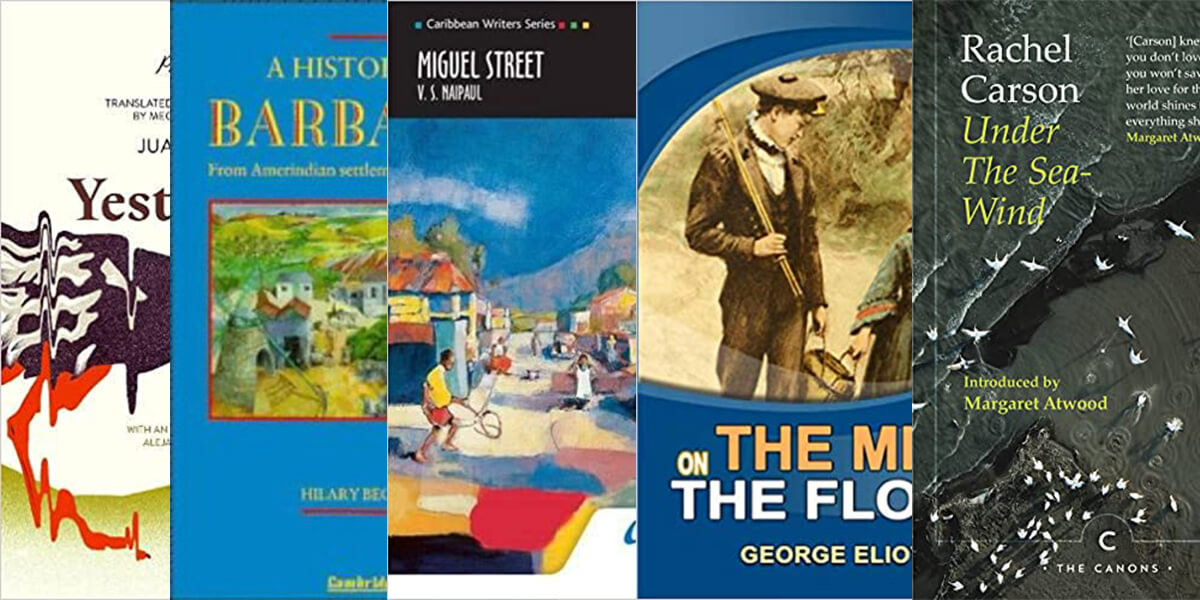
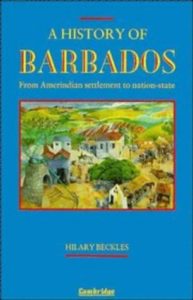
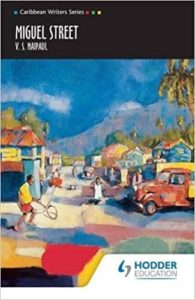
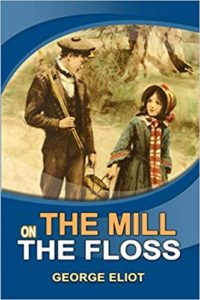
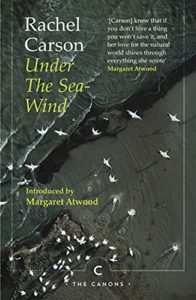
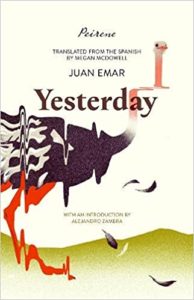


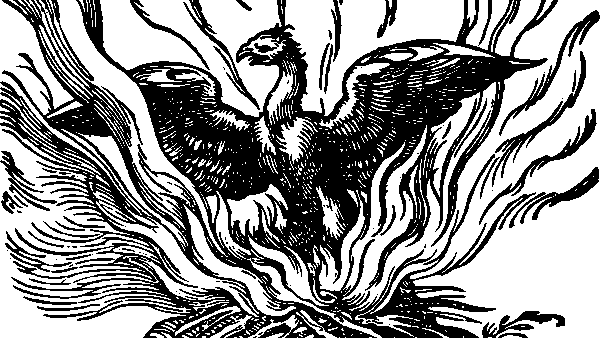
There are 12 comments
Nice variety! I read The Mill on the Floss a few decades ago.
My month of June was very eclectic, well, as usual: https://wordsandpeace.com/2021/07/01/2021-june-wrap-up/
To you as a reader and author, I would recommend a book I’m currently reading: Languages of Truth: Essays 2003-2020, by Salman Rushdie. Amazing essays on literature, culture, society, and much more. This guy is so very smart and brilliant.
Thanks for the recommendation, Emma! I will check that one out. I’ve had mixed experiences with Rushdie novels, but he’s definitely a very smart guy, so I’d like to try his essays. I saw him speak years ago in London and was very impressed with what he had to say, not just about his book (The Enchantress of Florence at the time) but about so much more.
I dnf’ed the Emar. Too weird and pointless for me.
“Weird and pointless”: that could have been my three-word review 🙂 Well, I can report that you didn’t miss anything: wherever you stopped reading, things pretty much followed the same course after that. I’d still love to hear from someone who actually liked this book, but it does make me feel better to know that you had the same reaction as me, Lizzy.
Seems like the heat wave is everywhere right now. Love the image of the storks on the electric poles!
Yes, I heard things were pretty bad in the US, and it’s been blisteringly hot and dry across a lot of Europe too. But from talking to my parents, I was reassured to learn that at least some things are still normal: it’s still raining in London 🙂
I can barely remember what a cloud looks like too. I’m over this heat and I can’t wait for winter. Hope you stay cool and have a great July 🙂
Thanks Cheryl, you too! Rain is forecast for Saturday here, so we’ll see…
I haven’t heard of the books you read, but Yesterday just sounds awful and would not be a book I’d even pick up. I love when a book surprises me and pulls me in and carries me away as The Mill on the Floss did for you. I would love to see the storks and their fledglings trying out their wings. Hope you are doing well in July.
Hi Danielle, Yeah, I probably wouldn’t have chosen Yesterday either. I have an annual subscription to Peirene Press, and it came as part of that – they only publish three books a year and I usually enjoy them, so I’m happy to receive whatever they publish, but this one was a dud for me.
The baby storks are now so big that it’s hard to tell them from their parents! A few more weeks and they’ll be flying off to Africa. It’s been wonderful to watch the whole cycle!
“In fact, one of the shocking things about reading this history is discovering just how hard the planters and their British imperial backers worked to ensure that after emancipation, things would change as little as possible.”
This is something I’m seeing echoed in any number of my slavery-reading-project reads this year. Not in a deliberate way, like the authors got together and discussed it (across countries, across decades! hah) but in a gradual adding-everything-together jigsaw assembly of recognition.
Do you have Clint Smith’s How the Word is Passed on your list? It’s mostly Amn, though ends with a long piece on Senegal. I *think* it might be the kind of journalism that you particularly enjoy, with a link between past and present both practically (but occasionally poetically) expressed. Likely a favourite for me this year. Cinching the loop with mass incarceration a-la-du-Vernay too.
What I loved about the debut Carson work is that she expressed the interconnectedness of sea life so that you felt it and took it in, without her announcing it…simply via her observations. I think you mentioned your copy was missing the illustrations though? That’s too bad, because it made it feel much more like leafing through a biologist’s notebook, like you’re along with her, rather than studying. Still, you’ve the plus of an Atwood essay which was probably very good.
No, I hadn’t come across the Smith book before, but it sounds excellent! Thanks for the recommendation. Both the subject matter and the fact that the author is both poet and journalist are quite intriguing. I’m generally not attracted to books with a strong US focus, but I think I could make an exception for this one!
Yes, it was amazing how Carson evoked a whole ecosystem, while still making it a story you could follow. I read it on a Kindle, so although there were a few illustrations, they were pretty grainy and awful. I think it would have been better with a hard copy. But the Atwood essay was definitely a plus! She put Carson’s work in context and reminded me how little environmental consciousness there was back in the 40s and 50s when she was writing these books:
“Wasn’t the sea an ever-renewing source of bounty, there for humankind’s taking? You didn’t need to pay attention to its ecosystems, because why would you? The sea could take care of itself. It was too big to fail.”
So the essay really positioned Carson as a pivotal figure, and Atwood also pointed out how much misogynistic abuse Carson received for raising environmental alarms in Silent Spring, which she wrote while dying of cancer. One line of attack was the idea that because she was unmarried, she must be a communist 😮